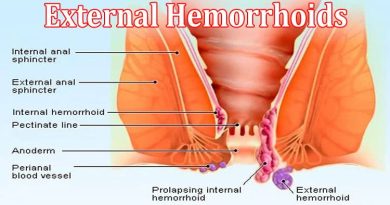Understanding PCOS: Five Coping Alternatives This 2023
If you or your partner suffers from Polycystic Ovary Syndrome (PCOS), you may have trouble coping with its symptoms. Fortunately, there are many things that you can do to help against the pain and general annoyance. Additionally, you must bring yourself adequate knowledge and understand it further.
In this article, we will briefly overview what PCOS is and how it affects a woman’s body. Also, we will be providing five great tips to help with your everyday duties.
What is PCOS?
Polycystic Ovarian Syndrome is a condition in which a female’s body produces more male hormones. This excess causes her to produce incompatible egg follicles each month, called polycystic ovaries.
These excess follicles don’t fully mature and stay longer than expected, causing symptoms and other complications often detected by ultrasound. Currently, there are no precise treatments or cures for this condition. Most PCOS patients take medications like metformin or similar.
If you’re already on one, don’t forget to shop for BuzzRx Coupons for Glucophage or other medications prescribed.
The Issue With Infertility
Perhaps what PCOS is commonly known for is infertility among women. Unfortunately, this affects many women with PCOS due to hormonal imbalances and egg immaturity. Without the release of a healthy egg, the sperm can’t properly combine itself and may die off. Many women experiencing PCOS report difficulty knowing when to be intimate.
Fortunately, there are methods of increasing the chances of conceiving, and treatments like oral medications, injectables, and IVF can be a viable option. These treatments can effectively increase the chances of being fertile and coping with other symptoms. So make sure you bring this up to your doctor or work with a reproductive endocrinologist for the best action.
With that in mind, the following points are great ways to cope with PCOS, so let’s start managing your weight.
Maintaining a Healthy Weight
Weight is a significant contributor to your symptoms. You can reduce hormones and insulin by toning your weight to healthy levels based on BMI. It can sometimes improve your ovulation and easily cope with the symptoms.
We suggest consulting with your provider for some weight-loss programs for PCOS and a local dietitian to monitor your eating habits to optimal levels.
Reduce Carbs
High carbohydrate levels contribute to the production of insulin. To help you cope with PCOS, your carbohydrate intake should be limited. Avoid high levels of carbohydrates if you can, and take on complex carbohydrates instead. These carbohydrates are a subgroup of foods containing a milder level of carbohydrates that raises your blood sugar slowly.
This diet allows you to handle your androgen and insulin levels properly. If you don’t have a proper diet plan, try experimenting with fruits, whole grains, cooked beans, and peas. To make it more manageable, search online for great recipes to make eating more enjoyable.
Patience And Understanding
Having such a condition is hard enough for women, and sometimes the best way to cope with it is with great support from her partner and family. Some women with this condition suffer from month-long hormonal changes that cause them to be emotional and irritable.
If you have a partner or know someone with PCOS, remember they feel these symptoms daily. That reassurance that you understand them helps with coping and their mental health.
Get Some Sun
Ladies with PCOS commonly have low Vitamin D levels, contributing to weight and insulin gain. Taking some time off under the sun and consuming Vitamin D meals can improve your fertility and lower the chances of other complications.
It also manages your weight, an important point mentioned above, and offers long-term benefits in coping with PCOS, skin, mood, and overall health.
Limit Your Stress
Stress is the most significant contributor to most conditions, including PCOS. Coupled with other conditions and the hassle of daily life, it can be easy to get stressed out. Unfortunately, this causes irregularities in your cycle which makes it worse. In extreme cases, stress may introduce other complicated diseases associated with PCOS, such as diabetes.
To lower stress, follow the mentioned points above and tackle new hobbies. You can also discuss reducing or adjusting your workload to manage it effectively.
Final Thoughts
PCOS is indeed a complex and frustrating condition to deal with. It’s a disease that women have to face their entire lives. Since there is no cure, they can only do proper maintenance with their prescriptions and make a lifestyle change for a chance of an everyday life with PCOS.
The tips above provide the simplest ways to cope if you follow these points and work closely with your doctors. You can eventually live a comfortable life despite the issues and problems brought on by PCOS.




